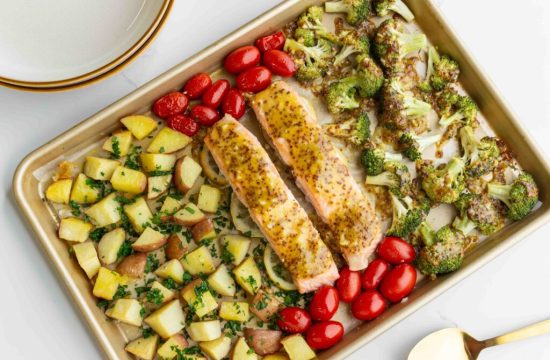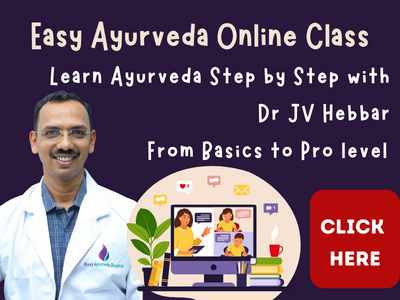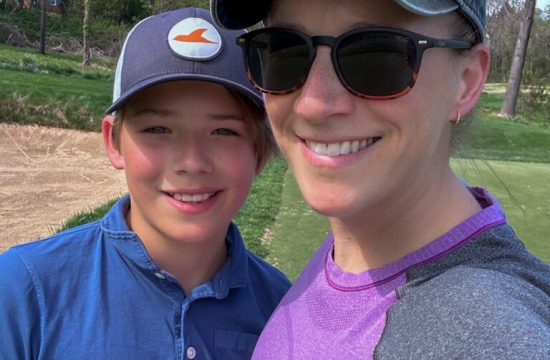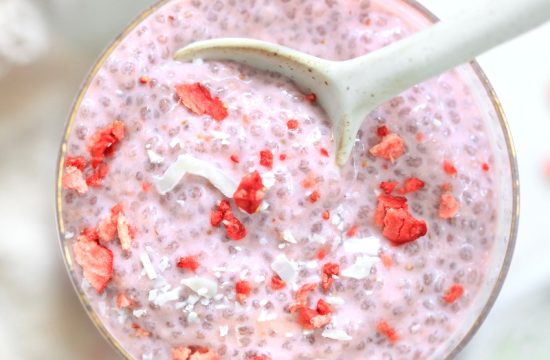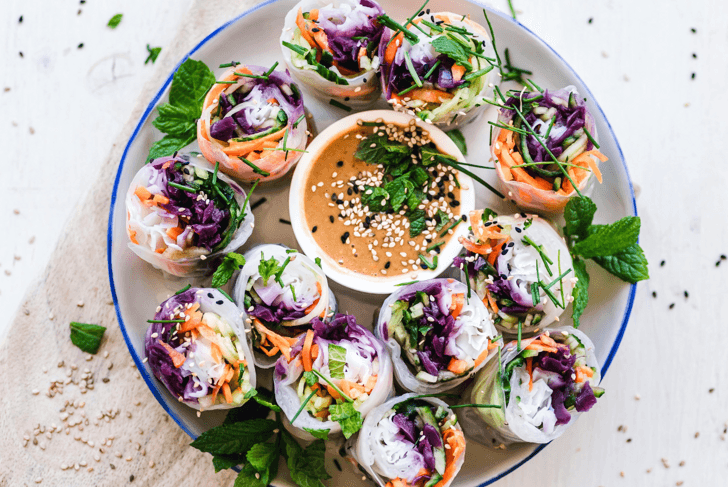
Welcome to Next Gen Natural, a column where we share a Gen Z perspective on natural health and wellness. I’m Michelle—alive’s Editorial Intern and creator of the Healthy Num Num food blog. I love healthy living and want to inspire you to integrate wellness into all parts of your life, regardless of your age.
Eating healthy can help keep both your mental and physical health in top shape. For example, regularly eating healthy foods can give you energy and help you perform better in school, at work, and in the sports you enjoy.
If you to make your own meals, you can also save money—another huge incentive for embracing healthy eating.
These are some habits and tips I use to set myself up for success to get the most out of healthy eating.
01
I focus on natural foods

Instead of restricting or cutting out specific foods or food groups, look for which nutritious foods you can <add> into your diet. Aim for whole foods, which are unprocessed or minimally processed natural foods, like fruits and vegetables, rather than ultra-processed foods, like fruits in syrup and canned vegetables. Ultra-processed foods generally contain fewer nutrients and often contain ingredients you don’t want to eat, including added sugar and salt, artificial colors, or preservatives.
I know that eating whole unprocessed foods can also reduce my risk for high blood pressure, heart disease, and stroke later in life.
02
I balance my plate

When I make a meal I try to remember to fill my plate with fibre-rich foods, including vegetables and whole grains along with good quality sources of fats and protein. One of my goals is to make sure that veggies and fruit make up at least half my plate, with a quarter of my plate devoted to healthy whole grain foods. That last quarter is where I add proteins like lean meats, nuts, and beans.
Personally, eating a balanced diet with nutrient-dense foods that I enjoy helps me <feel> healthy and energized.
03
I read food labels

As well as looking at the ingredients—and the order in which they’re listed—I look for low-sugar and high-protein quantities. High levels of saturated fat and sodium are some things to look out for and limit.
According to Heart & Stroke Foundation of Canada, eating excess amounts of saturated fat and sodium is associated with an increased risk of developing cardiovascular disease and high blood pressure.
04
I limit eating out

“We have food at home”— is something my conscience often tells me when I’m tempted to take a shortcut and eat out. Although restaurants may seem more convenient, eating from home is usually healthier and cheaper. To reduce the temptation of eating out, I stock up on ingredients that can easily be turned into a quick meal; for example, a variety of frozen veggies for a quick stir-fry and canned beans to add quality protein.
I try to cook all of my meals from home and pack interesting, nutritious lunches for work while limiting eating out for special occasions.
05
I plan ahead

Healthy eating can be made quick and easy by planning your meals ahead of time. If I know the week will be busy and I won’t have enough time to cook every day, I like to prep meals in advance. Often, I make my breakfast and lunch the night before a workday, so I have more time in the mornings. Another tip: make a double portion of your dinner to save for lunch the next day.
Planning meals ahead of time helps me make healthy choices and save time grocery shopping; it also saves me money!
06
I look for inspiration

To find recipe ideas, I like to use Pinterest, TikTok, and Instagram. Sometimes, I’ll search up broader phrases such as “healthy easy recipes” or I’ll be more specific, for example “healthy salmon dinners.” This can be a simple way to find a recipe with a certain ingredient you’d like to use.
Our recipe section is my go-to for inspirational and nourishing recipes made with whole food ingredients.
07
I buy in season

Although many fruits and vegetables may be available in your grocery store year-round, look for produce that is in season, which is usually more nutritious and fresher. Eating seasonal foods also encourages you to eat a varied diet, which helps in maintaining a diverse gut microbiome, which is directly correlated with your health and overall well-being.
I often research online what foods to look out for, or just ask someone at my local health food store about what seasonal produce is currently available. I also love checking out my local farmers’ market.
08
I set goals

I started out by simply setting a goal of eating one healthy meal a day. It wasn’t long before this became a habit, and eating healthy meals became a part of my routine. I now find that I don’t crave as many sweets and ultra-processed foods. Another goal I have is to add more healthy fats to my meals, because they have many health benefits.
One example: flaxseeds and wild salmon are two great sources of, which reduce inflammation and lower the risk of heart disease, cancer, and arthritis.
09
I drink more water

Drinking water is the simplest way to restore fluids that we lose when we breathe, sweat, and take care of other bodily functions. It’s important in a healthy diet because water helps move nutrients throughout our bodies, and it also helps with digestion. We restore fluids, not just by drinking water, but also through the foods we eat. How much water we need every day depends on a lot of factors, including our health, our activity levels, and where we live.
Using a beautiful water bottle and keeping it refilled and always with me are ways that encourage me to stay hydrated. I sometimes infuse my water with electrolytes or with foods like lemon, mint, or strawberries to add flavor.
10
I add in supplements

To support my diet, I find supplements, with the advice of my health practitioner or nutritionist, can enhance my health. Some examples of supplements that may be right for you include calcium to support bone density and vitamin D to help your body absorb the calcium. Collagen can aid in skin, bone, and joint health. Certain foods, such as fish and eggs, nurture collagen production in the body, and collagen can also be found in supplement form..
I know that eating a healthy diet of whole, nutrient-dense foods is the best way to achieve my best health, but I also know that supplements are excellent when there’s something missing in my diet, and I need a boost.


